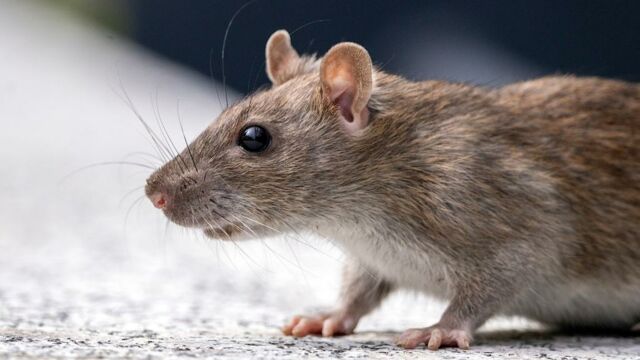Rats have always been a problem, especially in big cities. However, in the UK, the problem is getting worse for several reasons. One of the main ones is due to the weather this winter. Due to the recent Storm Henk, many rats are seeking refuge in people’s homes for warmth, shelter and a food supply.
Discover our latest podcast
Moreover, in some places, bin collections have been delayed, causing an overflow of rubbish, which is a magnet for pests such as rats. As reported by Express, the British Pest Control Association (BPCA) has noted a 115% increase in people asking for advice on how to deal with rats in the last 90 days.
Rat invasion in the UK
According to Express, there are roughly 250 million rats in the UK but due to recent weather, with temperatures drastically dropping, many are seeking refuge in people’s homes. Natalie Bungay, BPCA technical manager explained that this is normal behaviour for rats this time of year:
It's common to see an increase in rat infestations during the winter period, as rats and mice are on the hunt for warm, dry shelter with access to a food source.
However, recently, there has been a delay in bin collections over the Christmas period. This has caused an overflow of rubbish, which often attracts foxes, that tear apart bin bags to get inside, which then attracts other pests like rats.
Natalie Bungay added:
Disruption to bin collections over the festive period can also be a factor, as overflowing wheelie bins and black bags full of rubbish are basically a buffet for pests.
Paul Bates of Cleankill, a London-based pest controller revealed that since December, he has had 235 calls for rat problems:
2022 was 6 percent up on 2021 and last year was 3 percent up on that. Since December I have 235 calls for rats, which is a lot compared to normal. Since the coronavirus pandemic, the problem has been getting worse.
Rats can cause health problems
It is no surprise to know that rats can cause health problems. This is because rats communicate and mark their territory by urinating, which can spread diseases such as Weil’s disease, salmonella and listeria.
There are two ways to be contaminated by rats according to pestcontroldirect.co.uk, the first is food contamination, if rats get access to a food supply, they can contaminate it through their urine, droppings and hair.
The second is water contamination. If a hoard of rats live near a water source or tanks, the water can be contaminated through the same manner, urine, droppings and hair.
How to avoid attracting rats
There are several measures you can take to avoid attracting rats, first, as recommended by pest expert Mark Moseley, founder of PestGone Environmental Ltd, if you have bird feeders, have something to catch the food to avoid it dropping to the ground. The same applies if you have any kind of fruit tree.
He also recommends not putting bin bags straight on the floor, instead putting them in a wheelie bin, finally, if you have any foliage in your garden, trim it back as much as possible to avoid creating a habitat.
Pestcontroldirect.co.uk also recommends storing food in rodent-proof containers and sealing any cracks gaps or openings in your walls, floors, or foundations.
Read more:
⋙ Amidst bin strikes in the UK, mutant 'super rats' resistant to poison are taking over the streets
⋙ New breed of 'super rodents' could endanger human health, according to experts
⋙ Lidl issues urgent recall over fears of customers consuming out-of-date meat
Sources used:
Express: ‘Warning over surge in rat invasions in UK homes as councils unable to cope’
Pestcontroldirect.co.uk: ‘Health Risks Associated with Rats in the UK: Diseases and Allergies’















